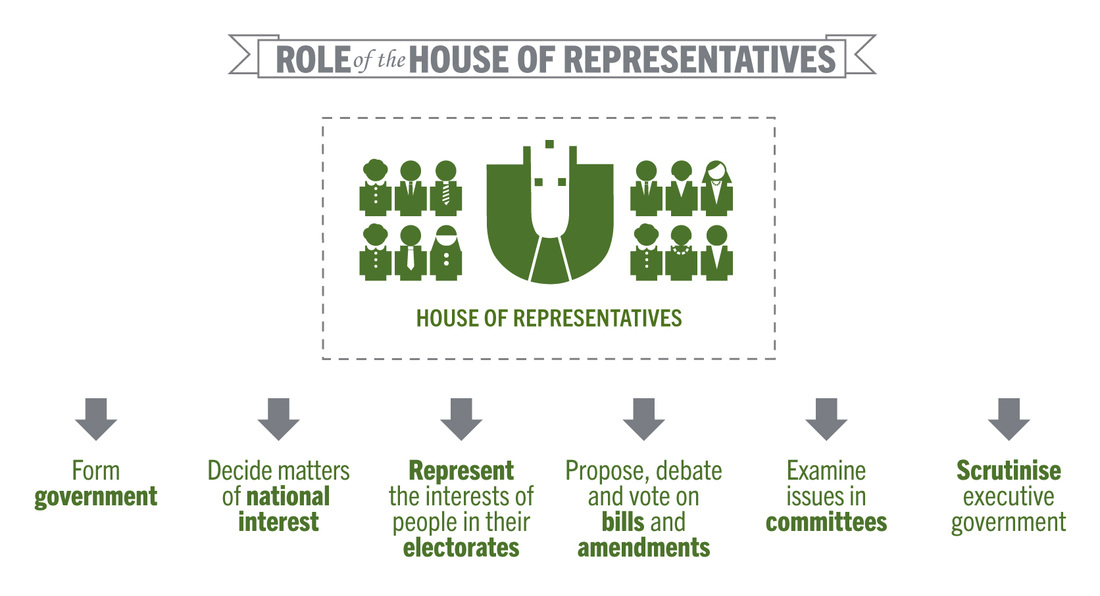Table Of Content
The House of Representatives shares equal responsibility for lawmaking with the U.S. As conceived by the framers of the Constitution, the House was to represent the popular will, and its members were to be directly elected by the people. In contrast, members of the Senate were appointed by the states until the ratification of the Seventeenth Amendment (1913), which mandated the direct election of senators.
The Difference Between The Senate And The House of Representatives

The speaker applies House rules and refers bills to specific House committees for review. The speaker is also third in line to the presidency, after the vice president. The constitutional provision making Congress the ultimate authority on government spending was approved by the Constitutional Convention with little debate.
Information about voting
A few Oklahoma Republican legislators released the following statements in response to the Biden Administration's new Title IX protections for "gender identity." Earlier this month, U.S. Education Secretary Miguel Cardona announced the new Title IX rules. Under the new regulations, sex discrimination includes discrimination based on "gender identity" as well as sexual orientation. "We must prioritize the well-being of Oklahoma's children and explore all options to replace federal funds tied to Title IX," Maynard said. "For three years, I have sounded the trumpet that not only is federal funding of state education unconstitutional but it is also a bad idea," Bullard said.
Office Locations
"The American flag stands for the American people and represents the oath we take as elected officials to bear true faith and allegiance to the United States Constitution," said Rep. Brad Finstad. "It is despicable that sitting Members of Congress would fly the flag of a foreign nation on the House Floor, which is why I am proud to support Rep. Cammack's resolution protecting the integrity of the People's House by ensuring that the only flag flown within the Halls of Congress is the American flag." An earlier version of this article incorrectly identified the political party of a group of representatives who notably voted “no” on new aid for Israel. Procedurally, they also are responsible for sending out notices to the Representatives from their respective parties regarding the floor schedule, providing membership with copies of bills and reports and authoring their parties’ official positions on legislation up for debate. The committees also play an important role in the control exercised by Congress over governmental agencies.
Further, despite assertions of an “open” process, the foreign aid bills were brought forward with anything but. Worse still, a mere seven amendments received consideration on these bills, despite over 300 having been filed, and not a single amendment to secure the border was made in order. These bills were brought forward under a contrived process to achieve a pre-determined outcome — a $100 billion, unpaid-for foreign aid package while failing to secure the southern border. Each of the two political parties also elect a “Whip”—the Majority Whip for the party with the most seats, and the Minority Whip for the other party—from their House delegations. The whip’s official role is to count potential votes for bills being debated for the party leaders. The Constitution provides that the House may choose its own speaker.[50] Although not explicitly required by the Constitution, every speaker has been a member of the House.
The House of Representatives is part of the Legislative branch of government. The House has 435 members, the number representing each state is determined by population. If they do, the bill does not become law unless each House, by a two-thirds vote, votes to override the veto. The approval of the Senate and the House of Representatives is required for a bill to become law.
The most significant role in the House of Representatives is that of speaker of the House. This individual, who is chosen by the majority party, presides over debate, appoints members of select and conference committees, and performs other important duties; speakers are second in the line of presidential succession (following the vice president). After the whips, the next ranking official in the House party's leadership is the party conference chair (styled as the Republican conference chair and Democratic caucus chair). The House began work on April 1, 1789, when it achieved a quorum for the first time. Katherine ClarkAssists leadership in managing party's legislative program. Tom EmmerAssists leadership in managing party's legislative program.
Membership, qualifications, and apportionment
Committees have extensive powers with regard to bills; they may block legislation from reaching the floor of the House. Standing committees also oversee the departments and agencies of the executive branch. In discharging their duties, standing committees have the power to hold hearings and to subpoena witnesses and evidence. The House is also served by several officials who are not members.
Representative Dan Houx - Missouri House of Representatives
Representative Dan Houx.
Posted: Tue, 20 Feb 2024 05:32:16 GMT [source]
US House approves $61bn in military aid for Ukraine after months of stalling
Under Article I, Section 2 of the Constitution, seats in the House of Representatives are apportioned among the states by population, as determined by the census conducted every ten years. Each state is entitled to at least one representative, however small its population. During the first half of the 19th century, the House was frequently in conflict with the Senate over regionally divisive issues, including slavery. The North was much more populous than the South, and therefore dominated the House of Representatives. However, the North held no such advantage in the Senate, where the equal representation of states prevailed.
There is no central listing of member office public e-mail addresses. Each member of Congress establishes their office's policy related to the processing and management of e-mail. Generally, if a member has a public e-mail address, it can be found on the member's website. The office may list a public e-mail address or provide a form directly on the member's website. The U.S. House of Representatives does not provide a listing of public e-mail addresses for the elected Representatives. The three primary House office buildings—Cannon, Longworth and Rayburn—share a room numbering system for above-ground rooms that might confuse visitors at first.
In 1995, Republicans under Newt Gingrich set a limit of three two-year terms for committee chairs. The chairman's powers are extensive; he controls the committee/subcommittee agenda, and may prevent the committee from dealing with a bill. The senior member of the minority party is known as the Ranking Member. In some committees like Appropriations, partisan disputes are few. House leadership includes the speaker, majority and minority leaders, assistant leaders, whips and a party caucus or conference.
The sergeant at arms is the House's chief law enforcement officer and maintains order and security on House premises. Finally, routine police work is handled by the United States Capitol Police, which is supervised by the Capitol Police Board, a body to which the sergeant at arms belongs, and chairs in even-numbered years. Representatives and delegates serve for two-year terms, while a resident commissioner (a kind of delegate) serves for four years. The U.S. Constitution requires that vacancies in the House be filled with a special election. The term of the replacement member expires on the date that the original member's would have expired. One example of a provision repeatedly supported by the House but blocked by the Senate was the Wilmot Proviso, which sought to ban slavery in the land gained during the Mexican–American War.

Given the shortcomings of the government created by the Articles of Confederation, the framers soon realized that a bicameral legislature at the national level would foster a more representative central government. [T]he constitutional prerogative of the House has been held to apply to all the general appropriations bills, and the Senate's right to amend these has been allowed the widest possible scope. Power is nowhere concentrated; it is rather deliberately and of set policy scattered amongst many small chiefs.
It came after the Republican speaker, Mike Johnson, forced a series of bills onto the floor in the face of fierce resistance within his own Republican party, many of whom oppose spending more on Ukraine’s defense. While all Democrats voted in favor of aid to Ukraine and all but Ms. Tlaib supported funding to Taiwan, 37 left-leaning Democrats defected to vote against the Israel aid bill. They said before the vote that they opposed unfettered aid to Israel that could be used in its offensive in Gaza. The opposition to the Israel aid represented a minority of Democrats, but reflected the deep resistance to unconditional aid and the divisions in the party on Gaza.
The Republican Party's majority was slightly reduced in 2016, as Democrats picked up six seats. Special elections will be held during the 118th Congress to replace members of Congress who leave office for any reason. Information about travel-related expenses incurred by representatives who are reimbursed by non-government sources. Elected by their peers, certain representatives hold positions that combine institutional, administrative and partisan roles. Send comments about the Find Your Representative service to the webmaster.
Under the Articles of Confederation, the Congress of the Confederation was a unicameral body with equal representation for each state, any of which could veto most actions. After eight years of a more limited confederal government under the Articles, numerous political leaders such as James Madison and Alexander Hamilton initiated the Constitutional Convention in 1787, which received the Confederation Congress's sanction to "amend the Articles of Confederation". Information about all receipts and expenditures of representatives, committees, leadership, and officers of the House. The Republican leadership in the House voted for the fiscal 2025 budget, and the four minority party votes against the budget were cast by Reps. Nicholas Boldyga, David DeCoste, Marc Lombardo, and Alyson Sullivan-Almeida. As outlined in the Constitution, the House represents citizens based on district populations, while the Senate represents citizens on an equal state basis. This agreement was part of what is called The Great Compromise which, in turn, led to the Permanent Seat of Government Act establishing the nation’s federal capital in Washington, DC.

No comments:
Post a Comment